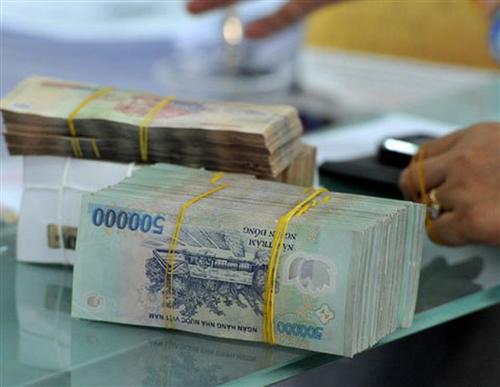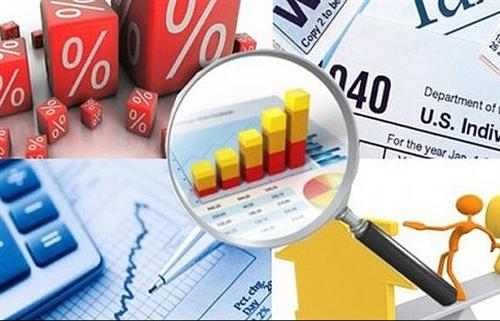IFRS for better financial reporting in Vietnam
IFRS for better financial reporting in Vietnam
The recent announcement of a roadmap for international financial reporting standards (IFRS) in Vietnam marks a key milestone on the path of improvement of financial reporting quality in the country.

Tran Hong Kien - Partner of Assurance and Accounting Services PwC Vietnam
|
The IFRS Roadmap in Vietnam was officially approved in Decision No.345/QD-BTC on March 16 by the Ministry of Finance (MoF), a year after issuance of the draft version. It is a big leap in the MoF’s commitment to enhance the quality and transparency of financial reporting in Vietnam towards global standards.
The approved roadmap of IFRS application in Vietnam is fundamentally the same as the draft. However there are four notable differences.
First, the approved roadmap offers a more comprehensive approach, which will be effective for all entities except for small, medium and micro-sized enterprises. Entities falling under the roadmap will have different options or tracks – some belong to compulsory or voluntary IFRS application groups, whereas others are mandated to apply Vietnamese financial reporting standards (VFRS).
Second, according to the draft roadmap, an entity compulsorily or voluntarily preparing its financial statements (FS) under IFRS will be exempted from preparing FS under Vietnamese accounting standards (VAS). However, in the approved roadmap, this term is removed. This would probably be an area that requires further clarification by the MoF in the future.
Third, for adopters of separate FS under IFRS, the draft roadmap was opened to all qualified enterprises with demands and resources or enterprises selected by the MoF after 2025. The approved roadmap, however, leaves the voluntary adoption of separate IFRS FS after 2025 to be determined based on the results of the pilot application phase from 2022 to 2025.
Lastly, the approved roadmap excludes banks and other credit institutions which will follow a separate roadmap to be issued by the State Bank of Vietnam. In our view, this exclusion is appropriate since IFRS application will be more complex for banks and credit institutions due to the impact of IFRS 9 – financial instruments.
Sparking transformation
From 2025, VFRS will be mandatory for any entities who have not, either voluntarily or compulsorily, adopted IFRS in the first phase.
VFRS is expected to be issued before November 2024 with minimum changes to those IFRS to the extent suitable to the conditions of Vietnam's economy, the business’s needs, and the feasibility of application.
Whether adopting IFRS (after 2025) or VFRS (from 2025), future financial statements are expected to change significantly from the current VAS financial statements. Entities will have more say and be held responsible for the presentation of financial transactions under their substances, rather than following predetermined guidance as per the current VAS system.
In addition, the preparation process of financial statements will also be transformed. It is no longer merely a job of the accounting department, but rather requires smooth and collaborative processes in all divisions of an enterprise. This will be an end-to-end approach including human resources, finance, budget and planning, IT, taxes, risk management, and more.
An often-cited impact of IFRS on the operation of entities is that banks reduce the tenure of bank loans when IFRS 9 is adopted due to the impact of the expected credit loss.
Early adopter benefits
The IFRS adoption between 2022 to 2025 is voluntary for certain entities, such as parent entities which are state-owned enterprises, listed companies, large public entities and 100 per cent foreign-invested companies which are pre-approved by the MoF.
After this voluntary period, enterprises are either subject to IFRS (compulsory consolidated financial statements and/or compulsory/voluntary separate financial statements) or compulsory adoption of VFRS from 2025.
Rather than a completely new set of standards, VFRS are expected to be modified from IFRS with narrow scope modifications to suit Vietnam’s circumstance. Therefore, entities are recommended to start planning for IFRS conversion early. Such IFRS preparation tasks can still be used even when the VFRS option is selected in 2025.
If entities wait for the VFRS standards to be issued and until then start to study and implement, they will miss out the preparation stage which is crucial in achieving optimal implementation.
As mentioned earlier, IFRS adoption will affect every part of the entity. The successful implementation of IFRS extends beyond the accounting department. More importantly, it involves decision making and leadership by senior management including the board of directors, those who may not have an accounting background, in changing the operation processes, standardising information, and making optimal economic decisions.
The required time for an IFRS conversion process can vary, depending on factors such as human resources, knowledge and experience, availability of information in management information systems, industries, lessons learnt from peers, etc.
It usually takes a minimum of one year. Entities with a long history, operating in multiple industries, banking and insurance industries or with multiple geographical locations will need a longer period of time for conversion.
Even though 2025 seems to be quite some time from now, entities should not wait. A successful IFRS conversion project involves various processes and considerations which may not be ideally compacted towards the deadline. Experience shows that greater values can be achieved when basic preparation tasks are done before the formal IFRS plan is approved.
Early preparation tasks include assessing IFRS adoption impacts upon operations, budget and financial data as well as related stakeholders; planning to align the IFRS conversion objectives to those stakeholders, such as investors, shareholders, and lenders; and identifying potential shortage or insufficiency of human resources, data, and processes.
The IFRS conversion also requires the restatement of the opening balance sheet and restatement of comparative data of the periods before the IFRS adoption date which entities will need to comply with.
It should be noted that the amount of time spent on updating the knowledge of the accounting team, even though it is important, would account for a small part of the implementation period.
In the current economic conditions with many uncertainties due to COVID-19, entities will be more cautious in allocating budgets for IFRS implementation to best suit the business situation
It is expected that human resources for the upcoming IFRS of Vietnam will be insufficient, therefore, early preparation will help entities recruit and train the necessary staff before 2025.
Adoption success factors
Entities that have successfully adopted IFRS cover three main factors.
First, the application of IFRS requires an up-to-date information system to support the process of collecting, standardising, and processing end to end data throughout all internal departments within the entity or even with external stakeholders.
Successful IFRS implementations often go with successful implementation of the enterprise resource planning (ERP) system.
Therefore, entities that are in the process of implementing ERP projects should consider embedding functions relating to IFRS preparation.
Other entities without an ERP plan would still need to revise their existing information systems in order to capture the required IFRS information.
Second, the implementation of IFRS requires a collaboration between the accounting and other departments, thus the existing internal processes may no longer be suitable and need to be adjusted. This may involve a restructuring of the entity’s organisational structure towards efficiency and effectiveness.
Lastly, and most importantly, are people. The accountant role has changed from traditional debit/credit recording to preparing financial statements based on understanding the nature of transactions, exercising judgments from past information and future forecast. IFRS training and updating for accounting teams who are now mostly familiar with VAS cannot be implemented in a short period of time.
The management and the owner of the entities who will use IFRS financial statements should also be trained to read and understand the financial reporting information.




























